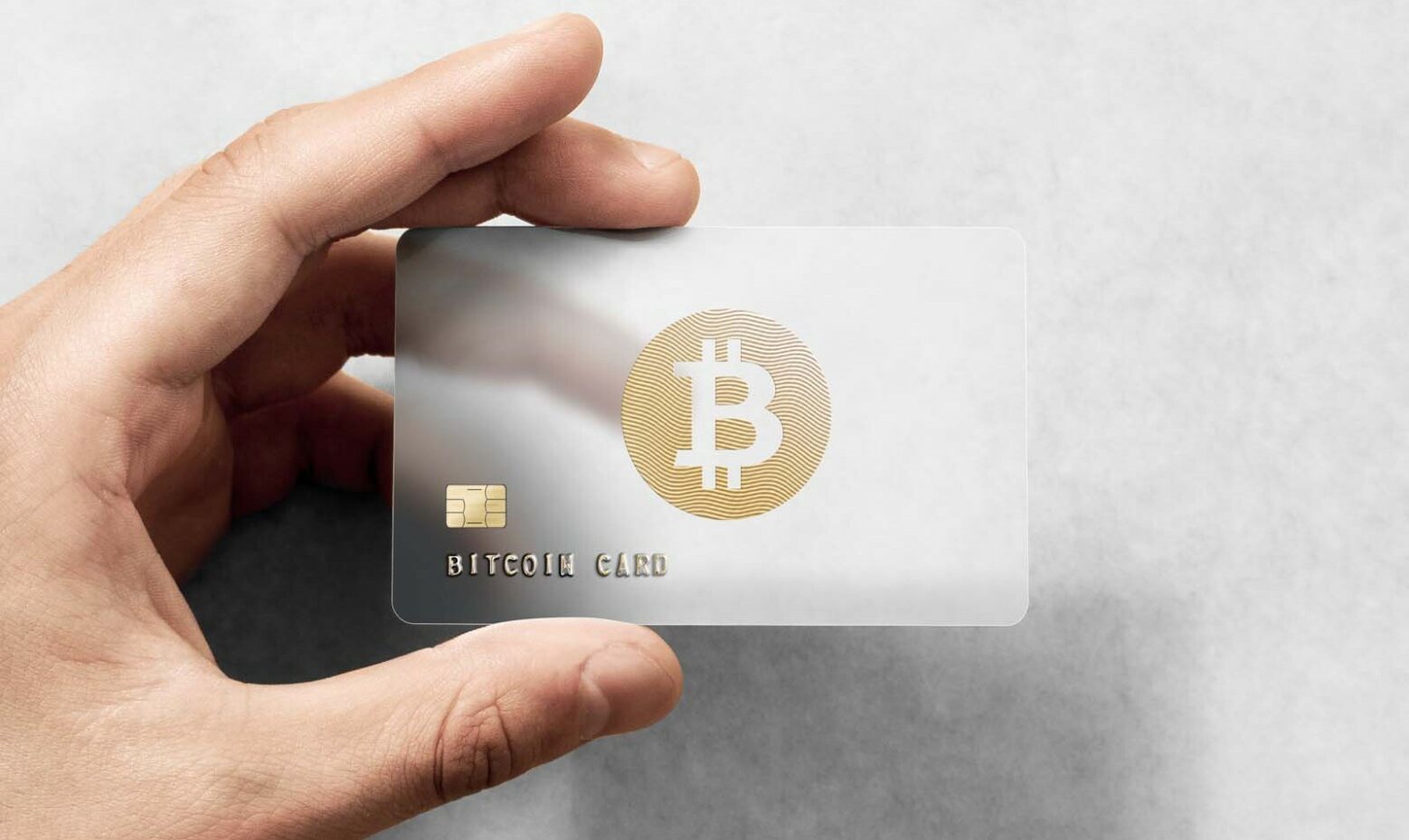
7 Best Crypto Debit and Credit Cards in 2024
Crypto cards are the perfect merger of crypto and traditional finance. They allow you to spend your crypto assets just like you would fiat, using a credit or debit card. No more converting your Bitcoin on an exchange, transferring between wallets, and finally, to your bank account several days later.
Currently, cryptocurrency debit and credit cards are limited in number. However, some of these crypto debit cards and crypto credit cards serve as purchase rewards cards, making them appealing to regular shoppers as they offer the opportunity to earn cash back on their purchases.
Here is the review and comparison of the best Crypto Debit and Credit Cards along with all the features, rewards and fees to help you decide which card is the best for you:
Table of Contents
What Is A Crypto Card?
In its simplest terms, a crypto card is a virtual or physical card that you can tap, swipe or scan to spend crypto on anything, from a cup of coffee to a utility bill.
A crypto debit card allows users to spend their cryptocurrency holdings, just like a traditional debit card (wherever card payments are accepted). Crypto cards work by linking the user’s cryptocurrency wallet to the debit card, enabling them to convert and use their digital assets for everyday transactions.
List of Top Crypto Cards
Let’s take a look at the best crypto debit cards and credit and how they compare. When selecting our list of top crypto cards, we researched the features, advantages, fees, and cashback.
Take a look at this combined table of top crypto debit and credit cards to find you the best crypto you need.
| Crypto Card | Cashback | Crypto | Transaction Fees |
|---|---|---|---|
CryptoWallet | Up to 3% | 800+ | 0.8% fee No conversion fee €0 monthly |
Crypto.com | Up to 5% | 80+ | 2% (non EUR) 1% topup fee 2% above ATM limits |
Coinbase Visa | Up to 4% | 8 | 2.49% conversion fee 1.5% ATM fee No annual fees |
Binance Visa | Up to 8% | 15 | 2% non EUR transaction 3% to 5% conversion fee |
Wirex Card | 0.5% to 8% | 36 | 1.5% conversion €29.99 monthly €5 delivery |
Nexo Credit Card | Up to 2% | 17 | No transaction fees No monthly fees |
Gemini Credit Card | 1% on Everything 3% on Dining | 40+ | 3% conversion fees No annual fees |
Best Crypto Debit Card of 2024
CryptoWallet.com Card

The CryptoWallet Card allows you to spend 800+ cryptos directly from your wallet with no conversion fees or markups! You can spend crypto anywhere or withdraw it as cash from an ATM.
With CW crypto card, you can get crypto cashback of up to 3% on every card purchase. When you make payments in fiat, your cryptos are instantly converted at the market price (with hidden fees or markup). There is a 0.8% transaction fee which is one of the lowest card transaction fees in the market
You can use the CryptoWallet.com Card to spend both cryptos and fiat funds that you hold in your vIBAN account. The virtual IBAN can be used to buy and sell cryptos quickly and can also be used to make SEPA transfers using cryptos
While we think our card is the best crypto card available, we’ll let you judge that for yourself. Here are the key features and what to look out for when choosing the best crypto card in 2024.
Features
- Earn crypto cashback up to 3% every time you use it in stores or online.
- Unlike many competitors, CryptoWallet.com’s card lets you spend crypto directly with no conversion.
- The crypto card supports over 800 cryptocurrencies, 14x times more than any other crypto debit card or credit card on the market.
Fees
- Zero conversion fee
- €0 monthly fees
- 0.8% translation fees (lowest in the market)
- Free card order and free delivery
Crypto.com Visa Card
Crypto.com functions as a metal prepaid Visa card, that requires the loading of funds using either cryptocurrency or fiat money. There is a top-up fee of 1%.
Crypto.com Visa Card supports buying and spending over 80 cryptocurrencies. Users can get cashback of up to 5% (based on your card tiers). There is no cash bank on the basic card.
The Crypto.com Card offers five different card tiers, each requiring the staking of a specific amount of Cronos (CRO), the platform’s cryptocurrency, for a duration of 180 days.
Features
- Discount on subscription services like Netflix, Prime, Spotify, or Airbnb
- Upto 5% cashback
- To access the full benefits (Obsidian card), you’ll need to buy and stake €350,000 in CRO tokens.
- Zero cashback on the basic card (Midnight Blue)
Fees
- 2% transaction fees (non EUR)
- 1% card top-up fee
- 2% ATM Withdrawal fee (above ATM limits)
Coinbase Card
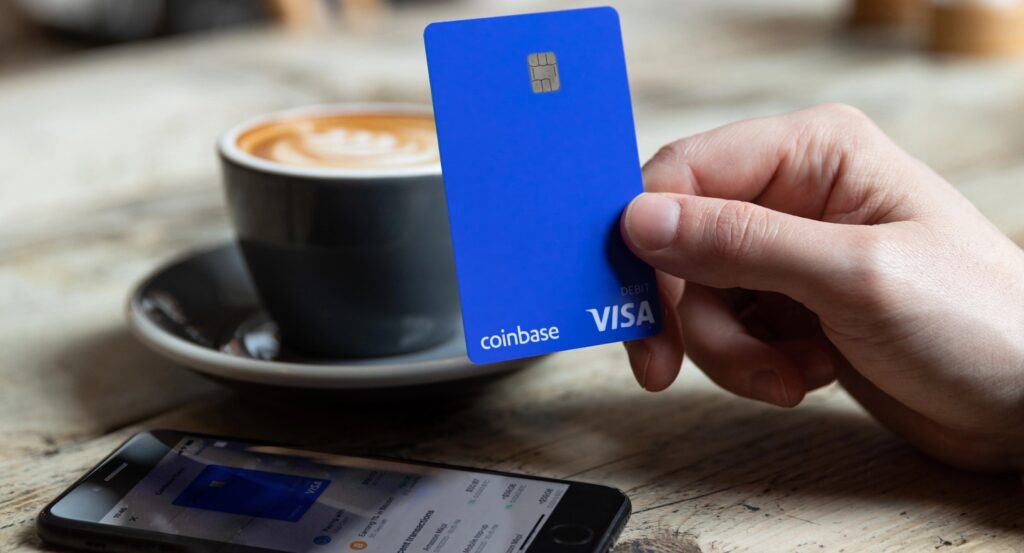
The Coinbase card is a debit card that is directly linked to your Coinbase wallet. You can spend more than 200 cryptos directly from your wallet.
There are zero transaction fees for spending fiat or cryptos with Coinbase Card, however, there is hidden markup when you convert crypto to fiat. This means that you will still pay around 2% to 5% extra in crypto conversion.
Whenever you use the card to make a purchase, the cryptocurrency in your wallet is automatically converted to the local fiat currency of the country where the card is being used.
Features:
- 4% back in crypto rewards for spending with the card.
- Auto converts all crypto to EUR/USD/GBP
- Instant card freezing
Fee:
- Zero transaction fee (but markup fee on crypto conversion rate)
- 1.5% fee on ATM transactions
- Zero card issue fees
- No annual, sign-up, or monthly fee.
Wirex Card
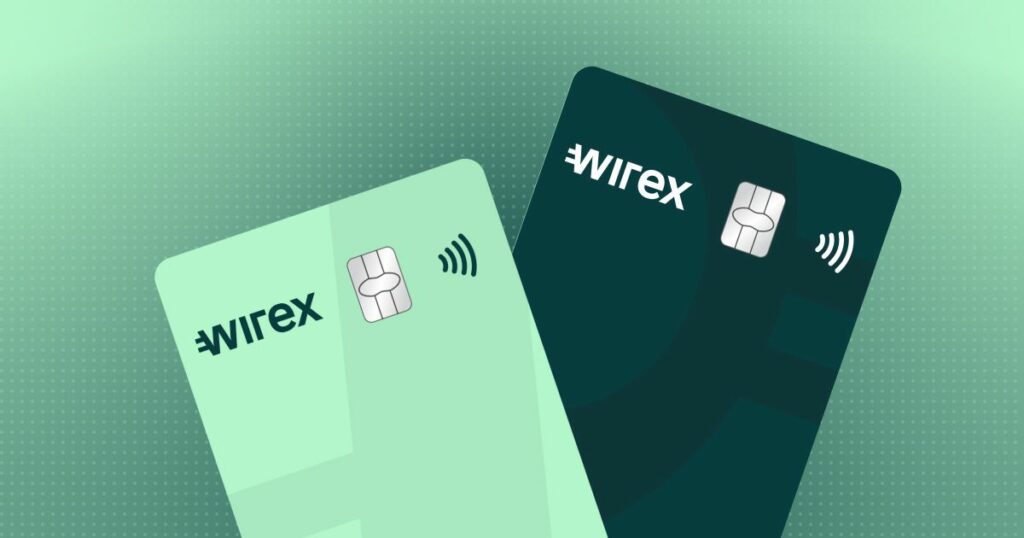
The Wirex Visa Card is a crypto debit card that allows users to manage 150+ crypto and fiat currencies effortlessly, offering direct crypto-to-fiat exchanges without intermediaries. Users enjoy the advantage of earning cashback rewards on every purchase made with the card.
Similar to many other crypto debit cards, the Wirex Visa card includes a unique token called X-points. These X-points can be converted into cryptocurrencies. To earn 8% in crypto cashback, you’ll need to lock WXT tokens and pay a €29.99 monthly fee to receive full cashback.
Wirex crypto debit card has high fees and does not provide as many additional benefits compared to Bitcoin debit cards. There is a crypto conversion fee of 1.5% on crypto-to-fiat transactions. Fiat-to-fiat transactions are free, however, there is a 1.99% fee to buy fiat and stable coins and 3.24% to buy cryptos.
Features
- Up to 8% cashback
- 150+ crypto and fiat currencies
- Interest rates available on your account
- Free basic plan (offers only 0.5% cash back!).
Fees
- 1.5% crypto conversion fee
- Free ATM withdrawal up to €200 monthly, 2% thereafter
- Card delivery fees of €5 or €15 (express)
- Free fiat trancations
Binance Visa Card
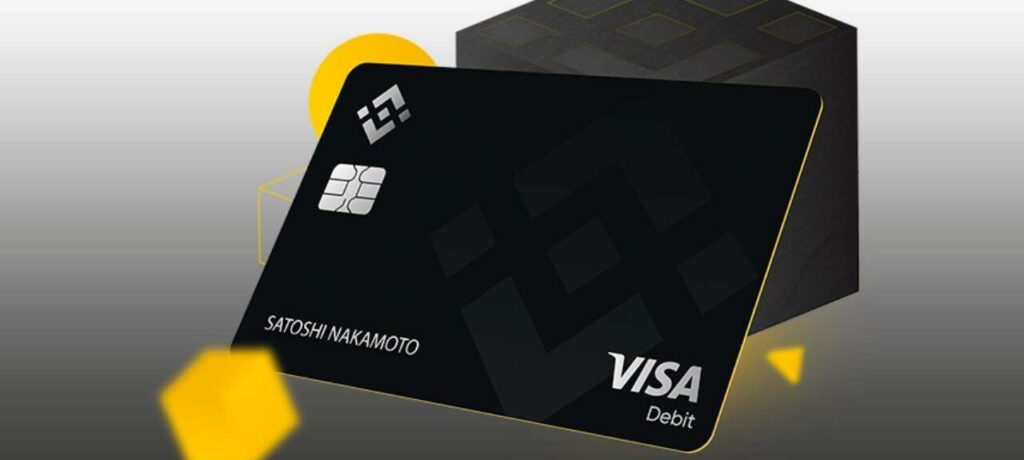
The Binance Visa card is a crypto debit card supported by the leading crypto exchange in the world. The Binance Card may offer zero transaction fees but have a very poor crypto conversion rate (up to 5%). The Binance Card does not support Apple Pay.
The card supports the conversion and spending of only 15 cryptocurrencies – BNB, BUSD, USDT, BTC, SXP, ETH, EUR, ADA, DOT, XRP, AVAX, SHIB, LAZIO, PORTO, SANTOS
The card offers generous withdrawal limits and a cashback program that rewards you with Binance Coin (BNB). You can also earn cashback of up to 8% (depending on your average monthly BNB balance).
Features
- Upto 8% cashback
- Only 15 cryptos supported
Fees
- 2% transaction fee (non EUR)
- Zero transaction fees (but the markup on the conversion rate)
- Up to 1% to 5% markup on crypto conversion
Best Crypto Credit Card of 2024
Nexo Card
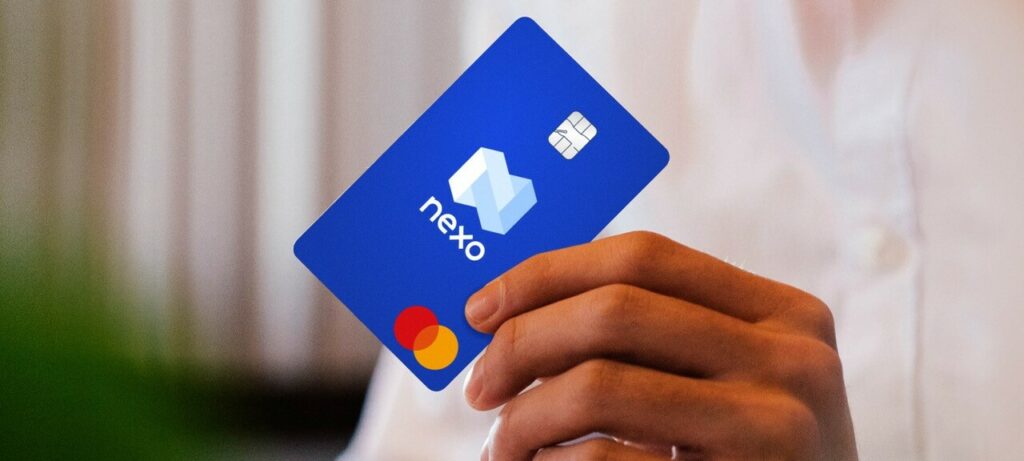
The Nexo Card is a crypto credit card that enables you to make purchases both online and offline. The Nexo credit card lets you spend fiat money using your crypto as collateral. This means you can spend in fiat without really selling your cryptocurrencies.
The crypto card is directly linked to your Nexo account. You can spend in fiat anywhere in the world where MasterCard is accepted and grants you access to various benefits and rewards worldwide.
Features
- Earn crypto cashback up to 2%
- If you want to receive your cashback in BTC, you’ll only receive 0.5% cashback.
- hold a balance in NEXO crypto tokens to receive rewards
Fees
- No transaction fees
- No monthly fees
Gemini Credit Card

Gemini Card is a crypto credit card that supports 40+ cryptocurrencies and it is only available to residents of all 50 U.S. states
With the Gemini Crypto Card, you can earn rewards in Bitcoin, Ethereum, or 40+ other cryptos currently available on Gemini. You can change your rewards to any available cryptocurrency, at any time.
There is no annual fee or transaction fees but there is conversion fees incurred for selling or converting your crypto rewards. You also get cashback rewards instantly the moment you swipe.
Features
- 3% cash back on dining
- 2% cash back on groceries
- 1% cash back on everything else
- Instant cashback rewards
Fees
- No transaction fees
- Conversion fees on selling or converting cryptos
- No annual fees
How Does a Crypto Debit and Credit Card Work?
There is a slight difference between crypto credit cards and crypto debit cards.
In short, the crypto debit card allows you to convert cryptocurrency instantly into fiat currency when making purchases or using ATMs, whereas a crypto credit card offers the opportunity to earn cryptocurrency as a reward for spending.
Crypto Debit Cards Explained
A crypto debit card is just like a regular debit card, that allows the cardholder to utilize their own money (or crypto) for purchases or ATM withdrawals.
When using a crypto debit card, the cryptocurrency is typically converted into fiat currency (e.g., USD, EUR, etc.) at the time of the transaction. This conversion happens instantly and seamlessly, allowing users to make purchases in traditional currencies without the merchant necessarily needing to accept cryptocurrencies directly.
Crypto debit cards offer benefits such as saving money on foreign transaction fees and FX rates while spending easily spending in multiple currencies. However, potential drawbacks of crypto cards are geographical restrictions and creating taxable events on every spend.
With some crypto debit cards or crypto prepaid cards, you’ll need to convert your crypto and preload the card with fiat through an app — you can usually do this instantly.
Crypto Credit Cards Explained
As with regular credit cards, using crypto credit cards involves borrowing money from the issuer. When you make a purchase, the card company provides the funds necessary and your balance increases. As with regular cards, crypto credit cards allow holders to earn rewards in cryptos for their purchases. What sets crypto credit cards apart is that the rewards come in the form of cryptocurrency that the issuer purchases for the holder.
With some crypto credit cards, you make purchases in fiat currency, but your cryptocurrency holdings act as collateral. At the end of the billing cycle, you have the option to settle your crypto credit card bill and reclaim your cryptocurrencies. Additionally, similar to traditional reward credit cards, you have the opportunity to earn cashback in cryptocurrencies.
One major benefit of using a crypto credit card is that it gives you a risk-free way to earn cryptocurrency just by making everyday purchases. This makes it a great option for hesitant, risk-averse newcomers to the world of crypto. The only significant drawback is the volatility of crypto markets, but at least cardholders will only be risking their rewards, rather than larger savings.
Get the Best Crypto Card

As you can see, each card comes with its own unique features and benefits. Think about what you’re looking for in a card. Is it ease of use? Multiple cryptocurrencies? The ability to control your own funds?
While our card ticks all these boxes and more, we invite you to take a look at each card available and see what suits your lifestyle. When choosing the best crypto card, it’s important to choose the best crypto card for you.
Join the whitelist to order your CryptoWallet.com card now!
Best Crypto Cards FAQs
How to apply for a crypto debit card?
Applying for a crypto debit card can be even simpler than applying for a traditional debit or credit card. To apply for the CW crypto debit card, follow the steps
– Go to the whitelist page
– Sign up and create an account
– Complete the KYC process
– Order your crypto card
Read More: Best Bitcoin Debit Cards in Europe
References
Crypto.com Card and fees
Binance Card and fees
Coinbase card and fees
Geminin card and fees
Wirex Card and fees
Nexo card and fees
Crypto credit card and debit cards